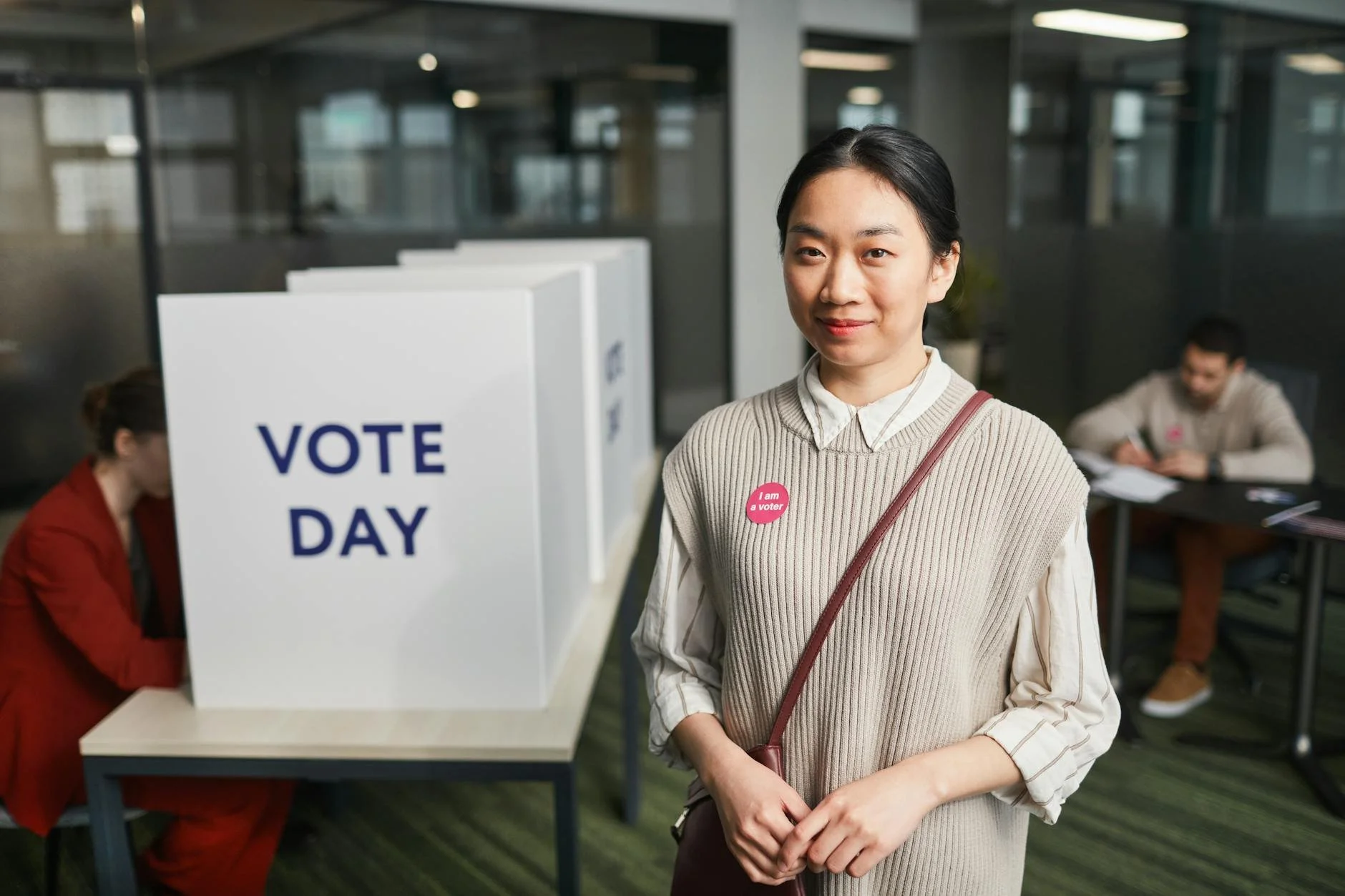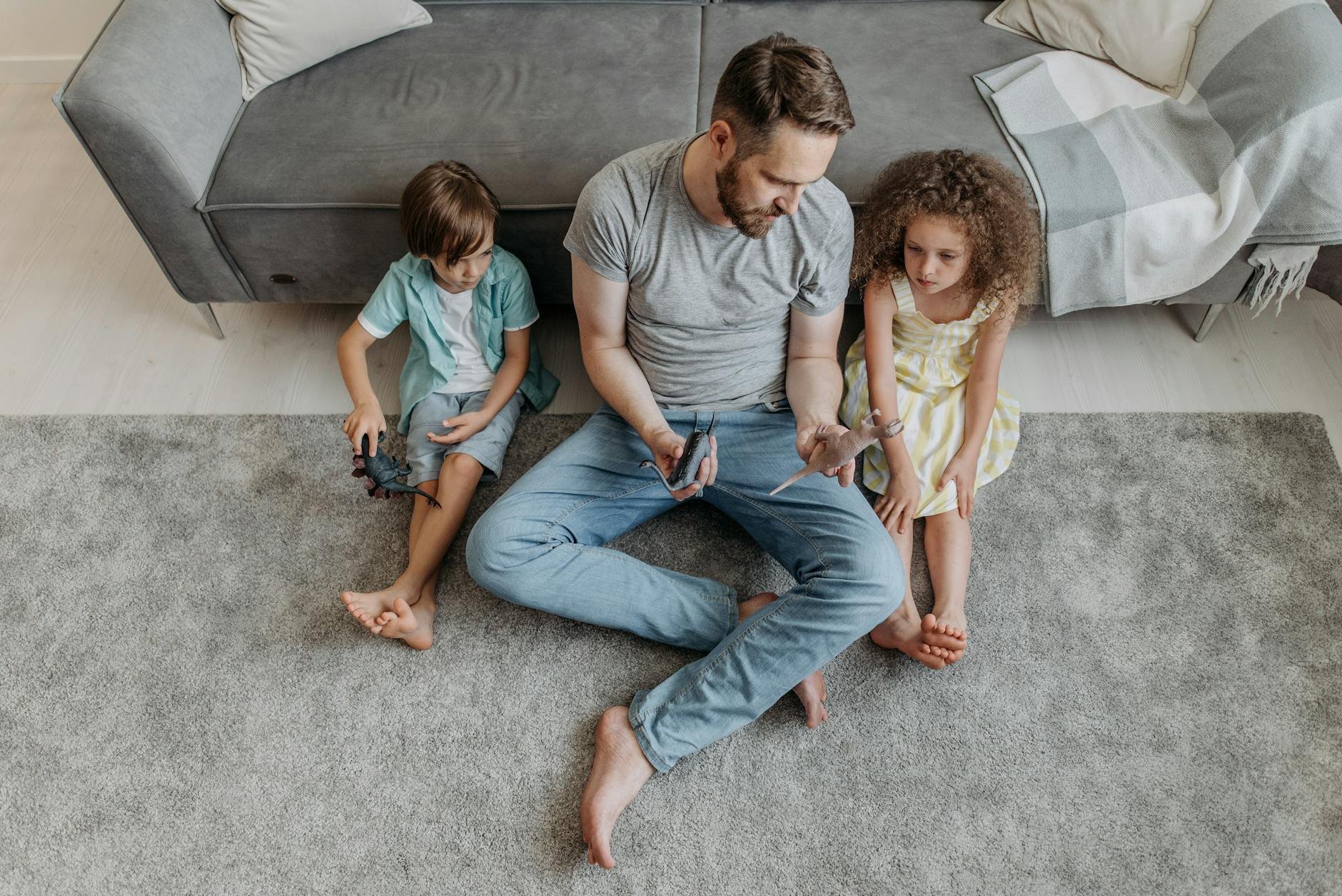How to Talk to Kids About the 2024 Election
How to Talk to Your Kids About the Election Results and the Changing World
The election results are in. For many of us, it’s a time of big emotions. It can be hard to know how to talk to kids and explain our feelings, especially when we don’t always have the answers ourselves.
If you’re feeling overwhelmed, you’re not alone. I’m right there with you, trying to find the best way to talk to my own kids about all of this. But I’ve also realized as a parent that these conversations are important. When we talk to our kids, we help them feel safe, heard, and ready to face the world with confidence. There are resources to help you navigate this. And I'm here to encourage you to do so, even when it's difficult.
One of my favorite resources are the conversation starters from The Kids Mental Health Foundation that you can download for free here.
Here’s why it matters, and how we can talk to our kids about what’s happening.
Why Talk About Politics with Your Kids?
It might seem like politics is an adult issue, but kids notice when something is different or when people are upset. They hear things on TV, in the news, or even from friends. If we don’t talk to them, they might get confused or scared. Or they might fill in all the gaps in their own head without your guidance.
Talking about politics doesn’t mean diving into all the details or telling them how you feel about everything. It doesn't mean expecting them to have big feelings or to take on yours. It just means being there to listen, answer their questions, and help them make sense of it all. When we talk, we show them that it’s okay to have big feelings—and that we can work through them together. A big part of this, in my opinion, is prioritizing building a community where you and your family can let down your walls and be seen and comforted. This can be especially true if recent events have caused any chasms in some of your existing relationships.
Let’s Validate Their Big Feelings
Your kids might feel all kinds of things—some might be worried, others might be upset, others might be excited about a big change even if they don't know much about it. And that’s okay. It’s normal to have big feelings, especially when the world around us feels uncertain.
One thing I’ve learned in my own home is that it helps when we acknowledge our kids’ emotions, but don't project them onto them. If they’re feeling scared or confused, don’t tell them “it’s fine” or “don’t worry.” Instead, let them know it’s okay to feel how they feel. You might say something like, “I know this feels strange and confusing right now. It’s okay to feel that way and mommy feels that way too.”
Your kids need to know that it’s okay to feel things deeply. When we share our own feelings, it shows them that we’re human too. That can make it easier for them to talk to us about their own worries. If we're going to continue to dismantle toxic masculinity, in a day and age where it's being elevated, we have to undo the unhelpful teachings in ourselves and model it to our own kids.
Talking to Kids 4 And Under
For children 4 and under, talking about the election and world changes requires an especially gentle approach. At this age, they won’t understand the concepts of voting or politics, but they can pick up on your emotions and the mood in the home. Keeping your conversations calm and positive helps reassure them that they are safe. Simple phrases like, “Sometimes, adults make big decisions, but we’re here to keep you safe and loved,” can go a long way in helping them feel secure. You can also channel their curiosity by focusing on basic ideas of kindness and sharing, letting them know that even when people have different ideas, they can still be kind to one another.
It's natural for little ones to get curious if they see or hear changes in routines, so gentle explanations can help them feel included in a way that they understand. For instance, saying, “Some people do things differently, and that’s okay,” helps build a foundation of empathy early on.
Talking to Younger Kids (Ages 4-7)
When your kids are younger, they may not fully understand what politics is all about. They just know that things might feel different or uncertain. At this age, it’s important to keep things simple.
Here’s an example of how to start:
“Sometimes, people vote to decide who will help make big decisions for our country.”
“Some people disagree on who should lead. And that’s okay. We can still be kind to each other.”
Even at this young age, we can teach them about kindness, fairness, and respect for other people’s feelings. Reassure them that everything will be okay, and that their home is a safe place where they are loved no matter what.
Talking to Older Kids (Ages 8-12)
As your kids get older, they start to understand a bit more about how the world works. This is the time to talk about how people may disagree, but that it’s important to listen and respect each other.
You could say:
“Elections help decide who leads our country. Not everyone agrees on who should lead, but that’s okay. We need to listen to each other and be kind.”
“It’s normal to feel upset or confused. And it’s also okay to feel hopeful, even when things are tough.”
You can also help them see that even when things change, we can still make a difference. Teach them that the world can change for the better when people work together. Let them know that no matter how things look, there are always ways to create positive change.
Tips for Talking to Kids About Politics
Be Honest, But Keep It Simple: Share only what they need to know for their age. Don’t overwhelm them with too much information.
Ask How They Feel: Let them tell you how they’re feeling. Ask questions like, “What do you think about what’s happening?” or “How does it make you feel?”
Focus on What We Can Control: It can feel like there’s not much we can do, but we can always control how we treat others and how we work to make things better.
Offer Reassurance: Let them know that no matter what happens, they are loved and safe with you.
Conclusion
Talking to your kids about the election results and the world’s changes isn’t easy. It’s okay if you don’t have all the answers. What matters most is that you’re there to listen and support them. When we talk about these things, we help our kids feel heard and ready to face the world. It’s not always simple, but together, we can get through it.
I know this conversation can be tough, because trust me, I’m having these talks in my own home too. But you’re doing a great job, and your kids will remember how you guided them through it.

